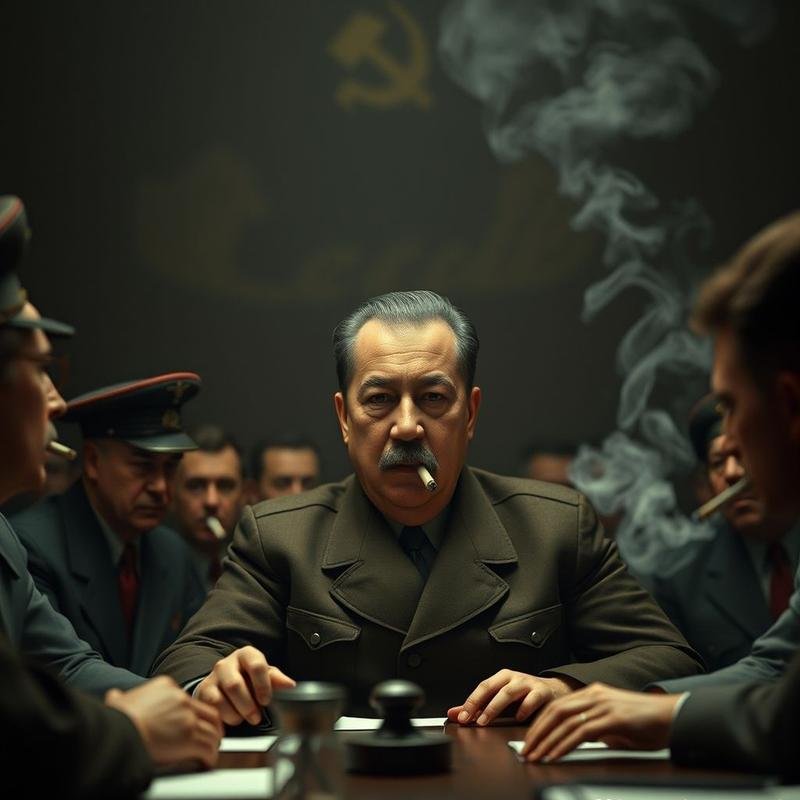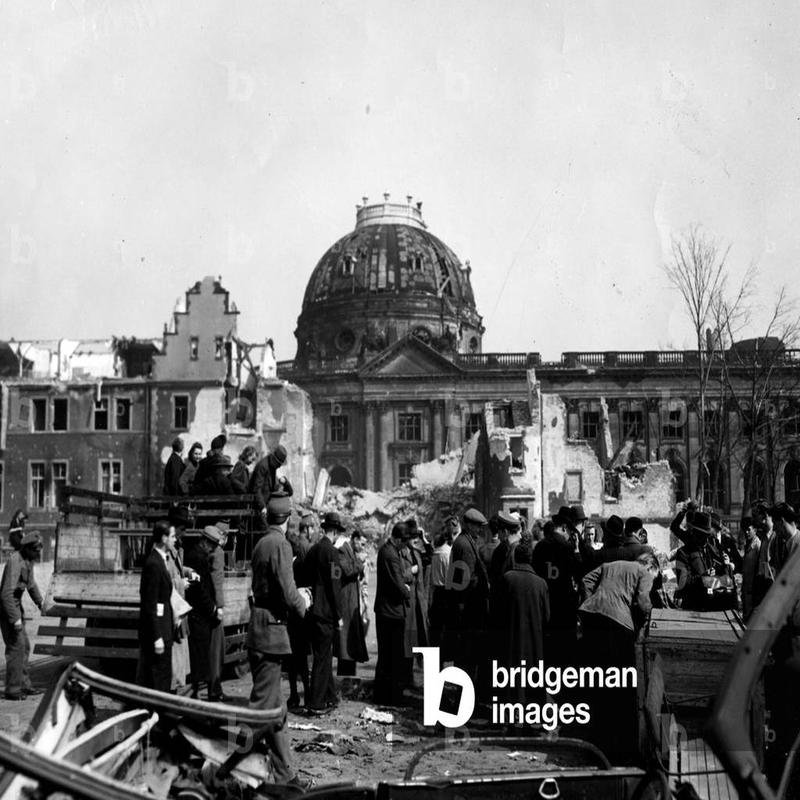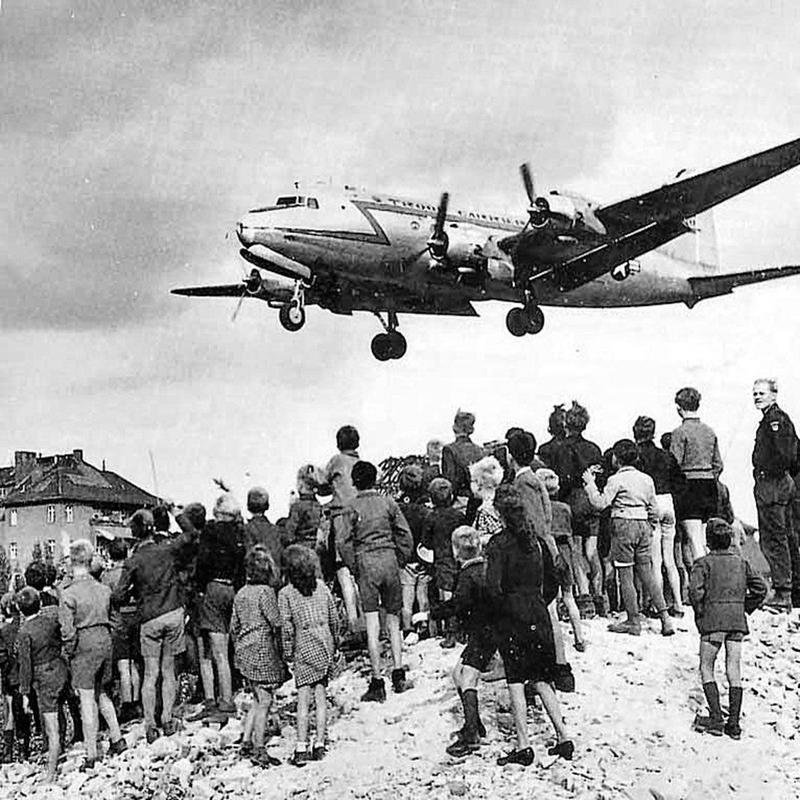Stalin and the Cold War: Why weren’t the Berlin Airlift planes shot down?

Stalin, Berlin Airlift & Cold War: Why No Interdiction?
In June 1948, the Berlin Crisis brought humanity to the brink of disaster. Stalin imposed a stringent blockade on West Berlin, severing critical supply lines in an attempt to force the Allies to relinquish their sectors and incorporate the entire city into the Soviet sphere of influence. Besieged and isolated, West Berlin required four thousand tons of supplies daily for survival. In response to this existential challenge, the Allies launched an unprecedented airlift, a lifeline from the sky. Aircraft ceaselessly traversed the city, delivering essential food, medicine, and coal, each flight a blatant defiance of Stalin’s will. The critical question remains: what prevented Stalin from ordering these aircraft to be shot down?
Soviet Military Limitations in 1948
In 1948, Soviet military capabilities were not as absolute as often perceived. The Red Army, victorious in World War II, was grappling with significant post-war challenges. Over 70% of Soviet industries were either destroyed or damaged, and the economy was in a precarious state. The air force, despite its size, relied on outdated, wartime-era aircraft. While the Soviet Union was developing jet aircraft, such as the MiG-9, these were in their nascent stages and not comparable to contemporary Western aircraft. Crucially, Soviet pilots lacked the experience and training necessary for modern aerial combat. The majority were exhausted veterans, while the new generation was still undergoing training. Any direct confrontation would have risked all-out war, a scenario for which Stalin was not yet prepared.
Internal Power Struggles within the Kremlin
Subtle power struggles were unfolding within Stalin’s inner circle. Was the decision not to engage solely his? Evidence suggests deep divisions. Beria, head of the secret police, viewed any military action as a prelude to a devastating world war. Mikoyan, the Minister of Foreign Trade, recognized the importance of maintaining trade relations with the West. His memoirs reveal that he personally discussed the risks of military confrontation with Stalin, warning that it would negate all progress achieved. Even Molotov, the hardened Minister of Foreign Affairs, expressed hesitation, fearing an unpredictable American response. These voices, though subdued, exerted influence on Stalin, who was not immune to the counsel of his close associates, especially on matters as consequential as war and peace.
The Shadow of the American Nuclear Deterrent
The fear of the unknown and its repercussions also played a role in restraining Stalin. The American nuclear deterrent: was fear of American nuclear power a decisive factor? Stalin was aware of the growing American nuclear capabilities. While the Soviet Union’s arsenal was not comparable, he understood the immense destructive potential of even a single bomb. Admiral Kuznetsov’s memoirs reveal growing concern within the high command regarding American technological superiority in nuclear weapons. Despite his ruthlessness, Stalin understood that initiating a nuclear war would obliterate Eastern Europe, the very region he sought to consolidate his influence over. Soviet intelligence reports provided accurate estimates of American air bases in Western Britain capable of launching nuclear strikes deep into Soviet territory. This direct threat, coupled with internal pressures, contributed to Stalin’s decision to avoid direct military escalation in Berlin.
A Calculated Gamble or a Fear of the Unknown?
Was it this delicate balance between ambition and fear that maintained the peace? Was Stalin’s decision not to fire a calculated gamble? What if his calculations had changed? Such a scenario could have opened the gates of hell. The downing of even a single aircraft could have been perceived by Truman as an act of all-out war, a distinct possibility. An overwhelming American response, perhaps limited air strikes on Soviet bases in East Germany, could have led to immediate escalation, potentially a ground invasion of West Germany by Soviet forces. All of Europe would have been engulfed, potentially triggering a devastating World War III.
Furthermore, would the Soviet military have truly obeyed an order to fire? Some historians suggest strong internal opposition, especially among senior officers who had experienced World War II and understood the human and material cost of another conflict. Perhaps this implicit refusal to obey averted an impending catastrophe.
Did Western intelligence possess sufficient information? Were they aware of the latent divisions within the Soviet leadership? Western intelligence reports from that period reveal varying assessments. While some focused on the immense military power of the Soviet Union, others pointed to Stalin’s deep fears of escalating the conflict and skeptical evaluations of the Soviet military’s readiness for all-out war. A classified CIA report, issued in July 1948, asserted that Stalin would avoid any direct provocative action.
Conclusion: A Fragile Peace Maintained
Stalin’s avoidance of firing on Allied aircraft was not a sign of weakness, but a reflection of extremely complex calculations. While the Red Army enjoyed overwhelming numerical superiority, its logistical infrastructure was severely strained. Shooting down a single American aircraft would have ignited a full-scale war, for which the Soviet Union was not prepared, either economically or politically. Moreover, Stalin feared the negative impact on global public opinion and the portrayal of the Soviet Union as a ruthless aggressor, which would have undermined his fragile diplomatic gains in Eastern Europe.
Therefore, Stalin chose to gradually strangle Berlin, an ultimately losing gamble, but one that maintained the peace, however fragile. Was this not the ultimate goal?
In light of these complex political and strategic calculations that prevented Stalin from direct military intervention in the Berlin Crisis, do you believe that the fear of the Cold War escalating into a hot conflict was the strongest motivation for his decisions, or did internal divisions within the Soviet leadership play a greater role in restraining him? Share your thoughts in the comments.
Video Analysis








